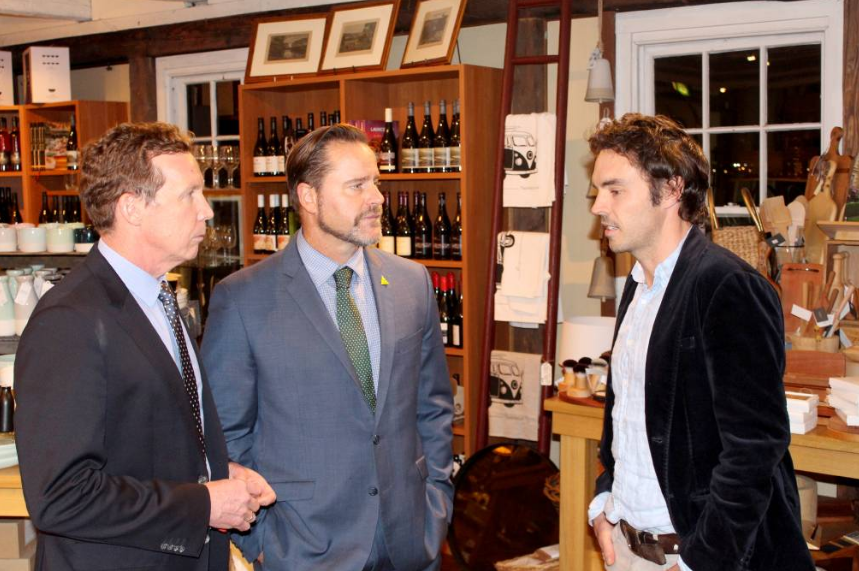Blog
Let’s get political (and some food for thought)!
Living in Australia at the moment, we cannot escape the plethora of promises from our nation’s political leaders, gracing our televisions and Facebook feed.
The 2016 election is knocking at the door – and whilst we aren’t here to tell you how to vote, it is an interesting time to consider healthcare and funding, and the role sugar and diet have to play.
There is growing interest in the public sphere around what we eat and how it impacts health. That Sugar recently screened at a cocktail party hosted by Nutrition for Life, an Australian organisation providing education to communities on preventative health and the importance of diet, where attendees included Damon and Greens Senator Peter Whish-Wilson.

The Greens have called for a 20% sugar tax on beverages with more than 5g of sugar per 100ml, following in the footsteps of the U.K., Hungary, and Mexico.
Whilst the efficacy of a ‘sugar tax’ has its fair share of skeptics, perhaps the logic behind such a policy is to get the ball rolling and raise awareness around what we should be cautious of consuming in excess, and how significant a role diet has to play on health.
Why we are where we are
How did we get to a place where lifestyle and diet related diseases are on the rise, despite the knowledge we have for what is good for us and what is not?
We could get into discussion around the food pyramid here, and the carbs vs fats debate. But perhaps as important is the perceived affordability and ease of access to highly processed foods,that are laden with refined versions of carbs and fats, and nutritionally devoid.
But is eating healthy more expensive? Well, it needn’t be!
We could argue that we are time poor, having created a culture where we squeeze something into every little nook and cranny of the day, leaving little time to prioritise health, including sleep and a spot of food preparation.
Having consideration for what we eat will ultimately impact our health. However, making ‘healthy’ choices is not always easy, and understanding what is healthy can be downright confusing!
This is where funding for education and access to nourishing whole foods comes into play.
Preventative care
An unhealthy diet is the leading cause of disease and disability globally. Food choice and access matters.4
Diet related illnesses include type 2 diabetes, heart disease, obesity, and even cancer. We now realise that food and other environmental factors have a role as to whether genes implicated in various disease states are made active or inactive. This influence of turning genes on or off is the science of epigenetics.3
Public healthcare can be used to teach us how to eat and live well to prevent disease, perhaps through school and workplace health and wellbeing education. Coupling this with how to prioritise self-care within our crazy-busy lives could be a major step toward a healthier future.
Not only will we each feel better for it, our economy can benefit with a more focused and energised workforce less prone to getting sick, and by easing the burden on our healthcare system of diet and lifestyle-related chronic disease.
Getting hold of the good stuff
Another necessary component in preventative health promotion is access to food and facilities that will support health and wellbeing. Individuals may struggle to eat well due to where they live, work or lack of cash.
What if there were hefty subsidies for fresh produce production, making fresh whole foods cheaper whilst supporting the local farmer?
Studies have shown that there is a significant increase in purchases and consumption of healthier foods that have been subsidised.2
Simultaneously we could consider the taxation of ‘unhealthy’ foods (such as soft drink), and ensure that even those with limited access to food (whether due to location, economic status, or anything else) can easily get hold of cheaper, tasty, whole food alternatives by having this comprise a majority of the supermarket shelves.
Whilst (as always) more research is needed specific to implementing such interventions to high, middle, and low income countries,1 there are more and more studies to show that subsidies and taxes influence purchase and consumption. However these interventions should be undertaken in tandem, to maximize benefit.4
We can only try
Any public health intervention will need to be based on research and free from industry influence, and address our lives holistically by considering food choice, movement and mental health.
Sure many ideas on public health intervention may seem idealistic! And establishing what is considered ‘healthy’ for the population as a whole is an area of discussion in itself. But we can all agree that:
- eating food in a form as close to it natural form as possible is better than the heavily processed alternative, and
- the national health care conversation needs to include the impact of diet and lifestyle on short and long-term physical, emotional and mental health.
Why wouldn’t try to avoid getting ill, as opposed to waiting until the damage has been done to seek intervention? It is the concept of preventative care and dealing with the cause, not only addressing the symptoms.
Individually and economically, short and long-term, it seems to make sense, right?
By Angela Johnson (BHSc Nut. Med.)
References:
- Alagiyawanna, A, Townsend, N, Mytton, O, Scarborough, P, Roberts, N, & Rayner, M 2015, ‘Studying the consumption and health outcomes of fiscal interventions (taxes and subsidies) on food and beverages in countries of different income classifications; a systematic review’, BMC Public Health, vol. 15, p. 887.
- An, R 2013, ‘Effectiveness of subsidies in promoting healthy food purchases and consumption: a review of field experiments’, Public Health Nutrition, vol. 16, no. 7, pp. 1215-1228.
- Choi, S, & Friso, S 2010, ‘Epigenetics: A New Bridge between Nutrition and Health’, Advances In Nutrition (Bethesda, Md.), vol. 1, no. 1, pp. 8-16.
- Niebylski, ML, Redburn, KA, Duhaney, T, & Campbell, NR 2015, ‘Review: Healthy food subsidies and unhealthy food taxation: A systematic review of the evidence’, Nutrition, vol. 31, pp. 787-795.












